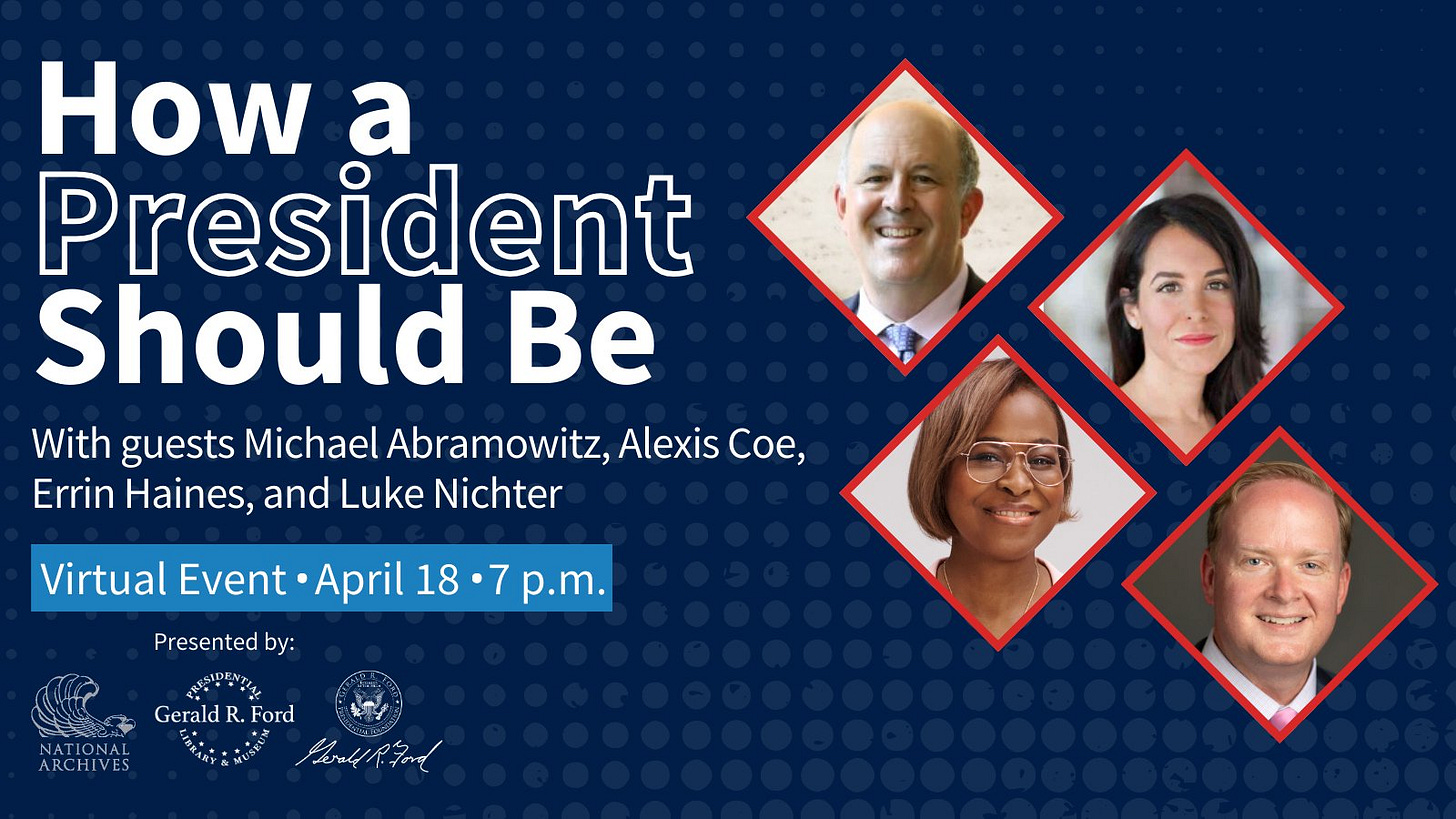UPCOMING
Chilling at home on Thursday? Register here to attend my virtual event at the Gerald Ford Presidential Library—the final four in my series for New America!
RECENT HISTORY
Keep reading with a 7-day free trial
Subscribe to Study Marry Kill to keep reading this post and get 7 days of free access to the full post archives.




